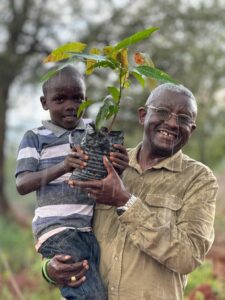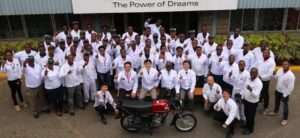God has forever shown kindness to Kenya, a nation often grappling with water scarcity, and now, we are witnessing an unusual meteorological phenomenon — abundant rainfall! I am literally writing this article amidst the rain while in Naivasha for a great couple’s retreat session during a month that has always been considered the driest for many years. Typically, more than two-thirds of the country receives less than 700mm of rain annually, with only 11% experiencing plentiful showers. However, in recent months, we have seen widespread and heavy rains, a stark contrast to the five consecutive failed rainy seasons we endured before last year.
As we celebrate in the current downpours, there’s an impending risk of returning to drier times. This alternation between extremes underscores the need for efficient water management. It is fine that Kenya already has a National Water Harvesting and Storage Strategy in place, I suggest that this be a time to revamp and reinforce our approach. Well thought out investments in infrastructure like rooftop rainwater harvesting, surface runoff collection, greywater reuse, and sand dams are more than just beneficial – we must see them as fundamental for water security.
Reflecting on the gospel tune “Let it Rain,” our policy should be more proactive than passive. It’s not enough to just let it rain — we must be intentional to harness every single drop. In rural areas, where piped water is a luxury, rainwater harvesting is a necessity, albeit hampered by the never-ending financial constraints.
I suggest that we emulate Australia’s approach to water conservation through tax deductions for water facilities. Offering tax incentives or subsidies for water tanks and related equipment could greatly enhance water storage and recharge groundwater availability after rains. Such a strategy might save billions in potential humanitarian aid and stabilize food prices by averting shortages. What do you think?
On the other hand, it is important to appreciate that the responsibility of efficient farming doesn’t lie solely with the government – farmers must also be deliberate to adapt. Last year, some farmers capitalized on the rains, enjoying up to three planting seasons and bumper harvests. It’s a clear indication that with the right information and resources, agricultural productivity can soar. We must therefore make this work because, in my opinion, true leadership and governance hinge not on the discourse of taxation, but on a relentless commitment to enhancing farm productivity. It is far easier to govern a citizen reaping bountiful harvests than one burdened by hunger.
Accordingly, I suggest that there ought to be a well-organized collaboration between the Kenya Meteorological Department, Ministry of Agriculture, and all relevant arms of government to play a pivotal role. By providing timely, farmer-specific weather forecasts and agricultural advice, these institutions can guide farmers in maximizing the benefits of the current weather patterns even at the tail end of the ongoing rains. For example, the expected abundant harvest is only as good as its preservation. Inefficient food storage not only lead to waste but also continue to pose mind boggling health risks, as evidenced by the tragic aflatoxin contamination in Makueni and Kitui in 2004, which claimed 125 lives. Much more severe unreported situations continue to be experienced because small scale farmers lack storage techniques and facilities which are vital to maintaining food quality and availability.
As we navigate this period of abundant rainfall, it’s crucial to think and act strategically. This means not just enjoying the present bounty but preparing for future uncertainties. I suggest that our policymakers must urgently embrace policies and practices that ensure short, medium, and long-term water security, agricultural productivity, and food safety. Just like in a marriage it is time for policymakers and farmers to allow to be vulnerable to each other so that we learn to turn this temporary abundance into a legacy of resilience and prosperity. Think green act green.



